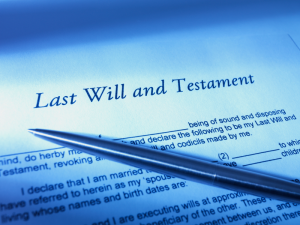Making a Will – Introduction

Quick Links
Overview
Write your Will
Legal Advice
Overview
Your will lets you decide what happens to your money, property and possessions after your death.
- If you make a will you can also make sure you don’t pay more Inheritance Tax than you need to.
- You can write your will yourself, but you should get advice if your will isn’t straightforward.
- You need to get your will formally witnessed and signed to make it legally valid.
- If you want to update your will, you need to make an official alteration (called a ‘codicil’) or make a new will.
- If you die without a will, the law says who gets what.
Write Your Will
Your will should set out:
- who you want to benefit from your will
- who should look after any children under 18
- who is going to sort out your estate and carry out your wishes after your death (your executor)
- what happens if the people you want to benefit die before you
When you Need Legal Advice
You can get advice from a professional if your will isn’t straightforward, eg:
- you share a property with someone who isn’t your husband, wife or civil partner
- you want to leave money or property to a dependant who can’t care for themselves
- you have several family members who may make a claim on your will, e.g. a second spouse or children from another marriage
- your permanent home is outside the UK
- you have property overseas
- you have a business
Keep your Will Safe
You can keep your will at your home or store it with:
- your solicitor
- your bank
- a company that offers the storage of wills – you can search online
the London Probate Service
Read full guidance on storing your will with the Probate Service (leaflet PA7) .
You should tell your executor (the person you’ve chosen to carry out your will), close friend or relative where your will is.


